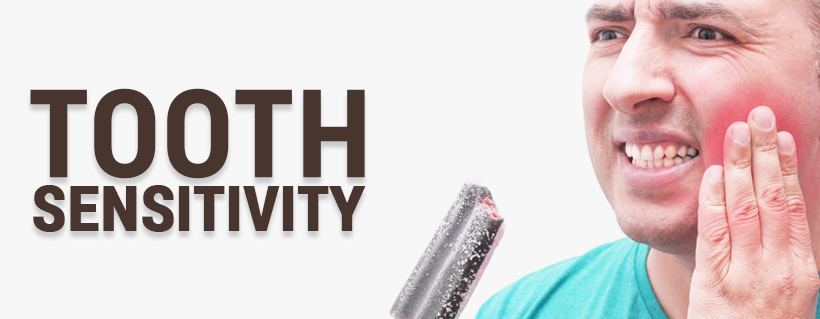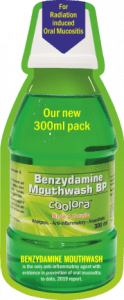Menu

Are you no longer able to enjoy life’s simple pleasures like eating ice cream or drinking your evening tea? Do you sometimes wince in pain while brushing your teeth? If your answer is a resounding yes, you could be suffering from tooth sensitivity – and you’re not alone!
According to a study by Journal of International Oral Health, the prevalence of tooth sensitivity among dental patients is 42.5%. Tooth sensitivity or dentinal hypersensitivity is a condition in which dentin, the inner layer of your teeth, is exposed.
Dentin has many pores connecting to the nerve and blood vessels. Upon exposure to stimuli in the form of food or touch, it causes a sharp pain. As a result, eating and drinking certain foods, and brushing causes discomfort.
Tooth sensitivity can be caused due to a number of reasons. To know the cause, make sure that you visit your dentist. He or she will examine your teeth and find out why your teeth have become sensitive. Here are some common reasons for tooth sensitivity:
Tooth’s inner layer, dentin, is protected by the enamel, which is the hardest substance in the human body. But, if you have been using a hard-bristled toothbrush or brushing too roughly, then over time, your enamel layer will be eroded away. This causes dentin to be exposed and sensitive to external stimuli.
Teeth grinding or bruxism is a condition caused by stress or anxiety. Those who have bruxism clench their jaws and grind their teeth, mostly while sleeping. This wears down the tooth’s enamel and leads to sensitivity. If you’re a tooth-grinder, your dentist will recommend a mouth guard to protect your teeth.
Whitening toothpastes are more abrasive than regular toothpastes so they can clean stains off yellow teeth and make them brighter. Some may also contain tooth-whitening chemicals, which some people are sensitive to.
When the gum tissue surrounding your teeth starts to pull back or wear away, it is called gum recession. It can be caused due to gum disease, genetic predisposition, tobacco use, improper dental care, and hormonal changes. Once the gums recede, parts of your teeth that don’t have enamel protection are exposed and cause sensitivity.
When the outer layer of your tooth is cracked, chewing and exposure to hot or cold temperatures causes pain. If you suspect that you have a cracked tooth, consult your dentist immediately. He or she may be able to reattach it. Depending upon the condition, the dentist will recommend a cap or extract your tooth.
Some dental whitening procedures like bleaching are known to make teeth sensitive. You may also experience tooth sensitivity after a root canal, crown placement, or an extraction. However, the sensitivity caused by these procedures is only temporary. If it doesn’t stop after some days, make sure you schedule another appointment.
Foods like soda, sweets, sticky candy, citrus fruits, etc. have either high sugar concentration or high acidity. The plaque in your mouth feeds on sugars and increases acid attacks on the enamel. While acidic foods worsen this condition by reducing the pH level in your mouth. Over time, these factors melt away your enamel and expose the inner layers.
Tooth sensitivity is a cause of great discomfort to people. Depending on the cause, your dentist will recommend a course of treatment. Here are some of the things that can treat sensitivity:
Desensitizing toothpastes are specially designed to deal with tooth sensitivity. They have chemicals that form a neurosensory block, relieving pain induced by sensitivity. RA Thermoseal is a rapid action desensitizing toothpaste that provides relief from day one. Your dentist may also recommend a toothbrush with extremely soft bristles like Thermoseal Ultrasoft.
Fluoride is the most important component for strengthening your tooth’s enamel. Your dentist may apply a fluoride varnish directly to the sensitive areas. This blocks the open and sensitive tubules and prevents sensitivity. He or she may also prescribe a fluoride mouthrinse for home use.
A bonding procedure is done when there is a flaw or decay that is causing sensitivity. Here, the exposed root surface is treated by applying bonding resin to it.
This surgery is done in case of receding gums. In surgical gum grafts, subepithelial connective tissue from the root of your mouth attached to the affected area. This covers the exposed root and reduces sensitivity.
In cases of severe sensitivity, your dentist might perform a root canal. A root canal is usually used when sensitivity cannot be cured using other methods. It is the most successful technique for dealing with tooth sensitivity.
If you have been experiencing pain due to sensitivity, make sure that you make an appointment with your dentist soon. Regular brushing, flossing, and bi-annual dental check-ups will help you prevent most oral problems including dentinal hypersensitivity.


| PRODUCTS | QTY | PRICE | VALUE in INR |
|---|
| PRODUCTS | QTY | PRICE | VALUE in INR |
|---|